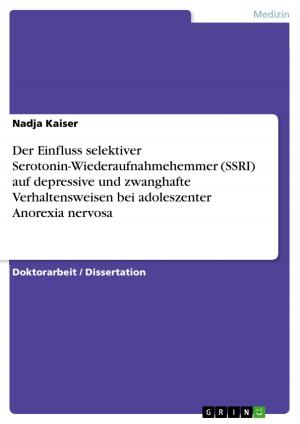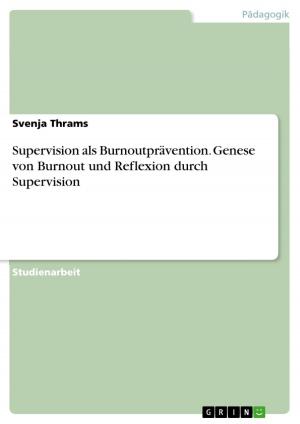Lifestyle advertising in postmodernism - the accepted popular psychology
Business & Finance, Industries & Professions, Hospitality, Tourism & Travel| Author: | Alexandra Riepe | ISBN: | 9783656165354 |
| Publisher: | GRIN Verlag | Publication: | April 4, 2012 |
| Imprint: | GRIN Verlag | Language: | English |
| Author: | Alexandra Riepe |
| ISBN: | 9783656165354 |
| Publisher: | GRIN Verlag |
| Publication: | April 4, 2012 |
| Imprint: | GRIN Verlag |
| Language: | English |
Essay from the year 2011 in the subject Tourism, grade: 70% (First), University of Lincoln, language: English, abstract: 'The real world of postmodern culture ... has entertainment as its ideology, the spectacle as the emblematic sign of the commodity form [and] lifestyle advertising as its popular psychology' (Kroker and Cook cited by Liu, 1998). This quote should demonstrate which changes postmodernism evokes. One of these changes is the emergence of lifestyle advertising explained here as a popular psychology which stands for its marketing character as being a persuasive and convincing form of advertising. Its aims are to fill the consumers with emotions of a specific lifestyle they should strive for to live. Therefore, lifestyle advertising can be seen as an important appearance out of the postmodern age, which will be defined and explained in this paper. Moreover, adverts will be presented in order to show how semiotic analysis can reveal the workings of lifestyle advertisements. With the aim of illustrating how this will work, three lifestyle adverts from the destination Australia were selected and analyzed by using semiotic terms and explanations. Nevertheless, the paper is also focusing on demonstrating how the emergence of lifestyle advertising is a reflection of cultural changes in the postmodern age. Those cultural changes will be illustrated and a connection between postmodernism and tourism will be drawn. However, this paper starts with explaining postmodernism from different points of views of scholars and authors, such as Featherstone, Lyotard or Singh, who defined and explained the term postmodernism in their way of experience and understanding.
Essay from the year 2011 in the subject Tourism, grade: 70% (First), University of Lincoln, language: English, abstract: 'The real world of postmodern culture ... has entertainment as its ideology, the spectacle as the emblematic sign of the commodity form [and] lifestyle advertising as its popular psychology' (Kroker and Cook cited by Liu, 1998). This quote should demonstrate which changes postmodernism evokes. One of these changes is the emergence of lifestyle advertising explained here as a popular psychology which stands for its marketing character as being a persuasive and convincing form of advertising. Its aims are to fill the consumers with emotions of a specific lifestyle they should strive for to live. Therefore, lifestyle advertising can be seen as an important appearance out of the postmodern age, which will be defined and explained in this paper. Moreover, adverts will be presented in order to show how semiotic analysis can reveal the workings of lifestyle advertisements. With the aim of illustrating how this will work, three lifestyle adverts from the destination Australia were selected and analyzed by using semiotic terms and explanations. Nevertheless, the paper is also focusing on demonstrating how the emergence of lifestyle advertising is a reflection of cultural changes in the postmodern age. Those cultural changes will be illustrated and a connection between postmodernism and tourism will be drawn. However, this paper starts with explaining postmodernism from different points of views of scholars and authors, such as Featherstone, Lyotard or Singh, who defined and explained the term postmodernism in their way of experience and understanding.















